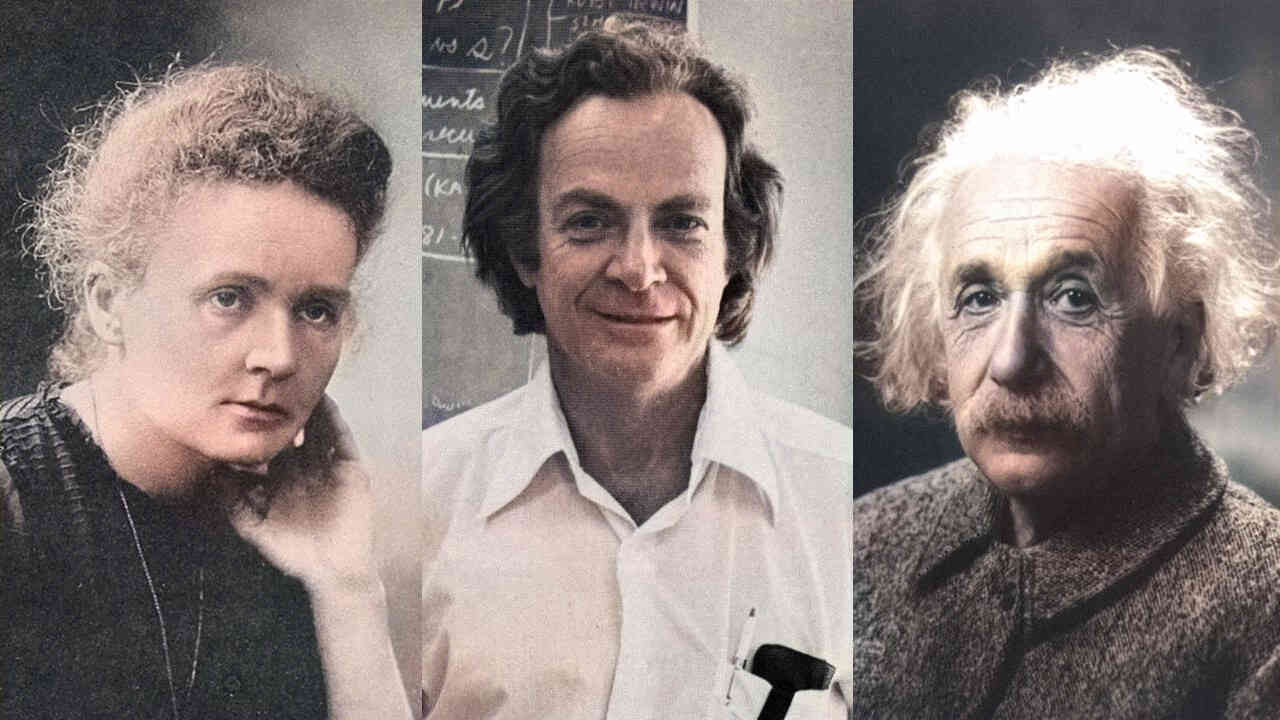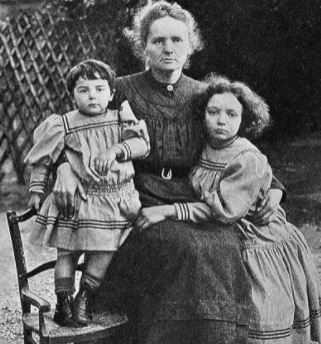
Michael Faraday: Faraday was a famous English chemist and physicist who could not finish his schooling due to poverty. As a teenager, Faraday self-taught himself while working at a book binding shop. He discovered the laws of electrolysis and electromagnetic induction.
Faraday's pioneering work inspired the likes of Maxwell, Einstein and Tesla. Faraday shows that hard work and self-belief can take you places. That one must be humble and receptive to understand that knowledge is not limited to school books, knowledge is everywhere.
Marie Curie: Two time Nobel Prize winner Madame Curie is best known for the discovery of Radium. Curie lost her mother and her elder sister when she was only 10 years old. Her paternal home was burned to the ground amid war in Poland.
Yet, Curie's tragic childhood did not stop her from becoming a scientist 20 years later. She told her daughters: “Life is not easy for any of us. But what of that? We must have perseverance and above all confidence in ourselves. We must believe that we are gifted for something, and that this thing, at whatever cost, must be attained.”

Albert Einstein: German born physicist Albert Einstein settled in the United States after becoming an American citizen in 1940. As a university professor, Einstein was deeply disturbed by racism in the education system. He decided not to stay quiet about it, expressing publicly:
“The more I feel American, the more it pains me. I can escape the feeling of complicity in it only by speaking out that racism is America’s greatest disease”. Einstein was always known for challenging the norms. As a 15 year old, Einstein clashed with the authorities at his school as he believed that creative thought was lost in a strict rote learning.
Richard Feynman: Feynman was a Rockstar among physicists. He always jumped into an adventure challenging himself and the authority in question. Once Feynman learned Portuguese just to impress his Brazilian colleagues. He played Bongo drums and performed for students with his friend Ralph Leighton.
Feynman drew pictures of contemporary scientists including Dirac, Bethe and painted flowers in spare time. He always had time for hobbies beside solving the mysteries of physics. Feynman openly criticized NASA exposing the safety risks after the challenger disaster. What do you care what other people think? An attitude that Richard Feynman carried till the end of his life and you should too in your adventures in life.
Stephen Hawking: In life, one must be ever ready to face mental as well as physical challenges. Stephen Hawking was a promising student at the prestigious Cambridge university when he suddenly was diagnosed with the motor neuron disease.
The doctors advised Hawking to put his affairs in order as he had only a few more years to live. Despite all the odds, Hawking went on to complete his PhD couple years later, and also revolutionized physics for next half a century. He wrote several best selling books, starred as himself on many popular shows and experienced zero gravity. Stephen Hawking lived life to the fullest.
Isaac Newton: Newton needs no introduction. As the story goes, his genius was unleashed by the falling of an apple. Newton invented the necessary mathematics to explain the dozens of unexplained natural phenomena. He gave the three laws of motion and did pioneering work in optics.
But it is a misconception that Newton did all the work by himself. For one, Newton could not afford the publication of Principia and took the help of noted astronomer Edmund Halley. Secondly, Newton borrowed the idea for calculus from ancient Greek mathematics. Third, Newton built upon the works of Kepler and Galileo and acknowledged this by saying: “If I have seen further, it is by standing on the shoulders of giants.”
Nikola Tesla: Serbian inventor and engineer Nikola Tesla worked for Edison machine works for over a year. Impressed by Tesla’s ingenuity, Thomas Edison offered to pay a hefty bonus for improving the designs of his DC dynamos, but it turned out to be a joke. Later on, the two inventors would feud over whose electrical system would power the world.
A college dropout who set out to revolutionize how humans consumed electric power, Tesla teaches forgiving and focusing on one’s own work. Work talks. Tesla believed: “The present is theirs; the future, for which I really worked, is mine.” Today, the entire world runs on alternating current electrical systems.






 Physics, astronomy and science history blog for students
Physics, astronomy and science history blog for students
Responsive Ad Slot